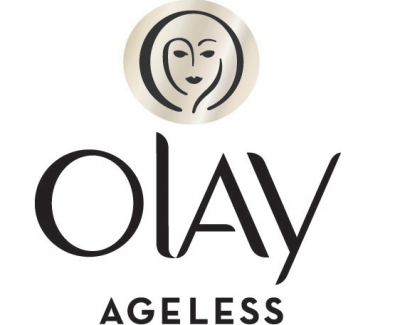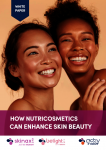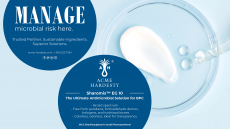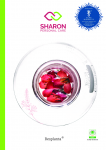Genetics’ effect on skin aging is limited, finds Olay

The global P&G-owned skin care brand conducted a study in which 21 sets of identical twins aged between 20 and 53 years old were divided in half, and one of each pair put on the ProX regime, while the other was not.
It found that, according to the participants themselves, 100% of the twins on the regime felt they looked younger, while 100% of siblings said they agreed their twin's skin was improved and voiced interest in using the routine themselves.
Two of a kind
“Since identical twins have 100% of their genes in common they should, in theory, age exactly the same way,” the brand noted, explaining the study’s start-point.
Yet following the eight week trial, the brand state, women from the treatment group using its Tone Correcting Protocol regimen had a reduction in visibility of dark spots and uneven tone versus their control twin.
Further to that, the brand reports that seven of the 10 women from the treatment group using the Intensive Wrinkle Protocol regimen had a reduction in the appearance of fine lines and wrinkles versus their control twin.
The study demonstrates, according to the brand, that women “have more control than you may think over our genetic destiny.” The results are now being used to plug the ProX range, in a marketing campaign which asserts: “Genes are given, beauty is gained.”
Watching your claims
Anti-aging product claims came under the spotlight recently, as L’Oreal this month agreed to settle Federal Trade Commission charges for deceptive advertising on its Lancôme Génifique and L’Oréal Paris Youth Code products.
According to the FTC, L’Oréal made false and unsubstantiated claims that its Génifique and Youth Code products provided anti-aging benefits by targeting users’ genes, but ultimately could not support these claims.
The settlement confirms that although clinical research claims on product branding may boost sales, companies need to display caution when promoting their anti-aging products, and must be able to support any such assertions with appropriate data.













